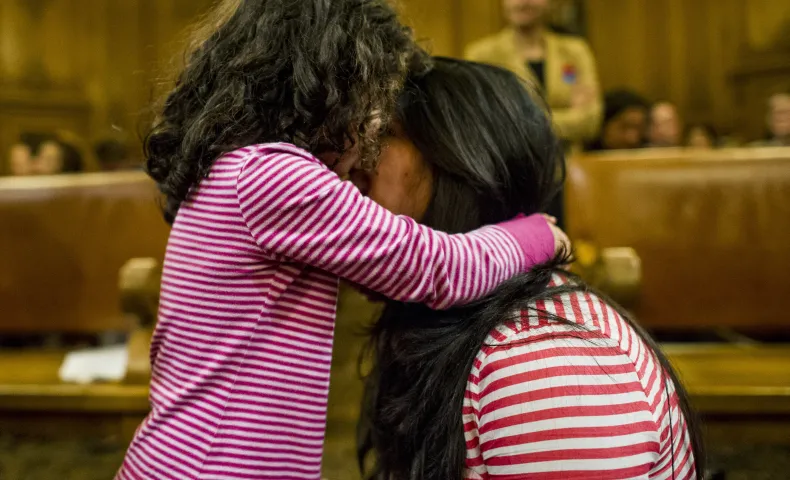
From Crisis Response to Lasting Change
The heartbreaking stories are piling up. Immigrant neighbors living in fear of what’s next for them and their families. Lifelong public servants cast aside, their livelihoods gone. College students dealing with disappearing research and financial aid. Voices silenced and dissenting opinions censored. People arrested, deported, not showing up for school or for work.
These are not normal times. A profound thank you to our nonprofit partners and funder colleagues who are making every effort to respond in the moment.
At a human level, that means making sure the families and communities we care so deeply about can find services, support, opportunities, and protections when they need them most. And it means supporting organizing, advocacy, and litigation that can assure that affected communities have a voice and that their fundamental rights are protected.
But the truth in a moment like now is that it is not enough to tackle each new challenge as it comes. At Haas Jr., we are seeking to find a balance between responding to the many emergencies our grantee partners and communities are facing and the work that needs to be done to seed change and new solutions.
How can we build a future where people are not just surviving and getting by, but also thriving? How can we best support both experimental and proven strategies to strengthen communities over time, expand opportunity, and reshape the systems and policies that determine whether people can live life with dignity and hope.
In this newsletter, we highlight three strands of work we are focused on right now with our partners to imagine a better path forward. We seek to build new partnerships and drive more resources to:
- Expand access to a bachelor’s degree by removing barriers that keep too many community college students from transferring to four-year institutions.
- Reclaim and reassert the narrative about how immigrants are integral to our economy, our community fabric, and culture.
- Expand language services in elections so that all eligible voters can have a voice in our democracy—no matter what language they speak.
- Advance the field of democracy policy by investing in rigorous research and centering grassroots perspectives.
These are not quick fixes. But they are the kinds of investments that, step by step, will get us closer to the world we seek.
With appreciation and determination,
Cathy